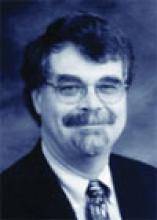When Confucius was asked what he would do first should he become minister of the Kingdom of Wei, he replied: “What is necessary is to rectify names.” He further stated, “If names be not correct, language is not in accordance with the truth of things. If language be not in accordance with the truth of things, affairs cannot be carried on to success” (from The Analects of Confucius, James R. Ware translation, 1980: book 13, verse 3).
I am reminded of this aphorism by Dr. Leslie Citrome’s article, “Treatment-resistant schizophrenia: What role for mood stabilizers?”. This article highlights several psychotropic classes whose names badly need rectification, including “mood stabilizers,” “anticonvulsants,” and “antipsychotics.”
A compound’s first use tends to give it its functional name. Sodium valproate was first used to treat seizures, so it is called an anticonvulsant. Lithium was first used to stabilize mood, so it is called a mood stabilizer. Sometimes valproate is now called a mood stabilizer as well. As Dr. Citrome demonstrates, both compounds also may have efficacy as adjuncts in treating schizophrenia. So do we call them antipsychotics, too?
Each compound has a variety of effects, of course, and we start to diverge from the “truth of things” when we get locked into thinking of a compound in just one way. We also make it less likely that affairs can “be carried on to success” for our patients.


